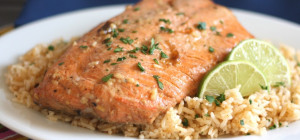 Here's the three-part skinny on why protein is so important:
Here's the three-part skinny on why protein is so important:
- Protein is the building block of lean muscle mass
- Muscle mass is the body's main calorie-burning tissue
- A reduction in muscle mass slows your metabolism, causes weight gain, and increases your risk for diabetes
Did you know that at around age30, most of us start to lose about half a pound of muscle every year? And when muscle starts to move out, fat begins to move in.So whether you're trying to lose a few pounds, or just want to hang onto the healthy body weight you're at, you need to understand the value of protein in your diet.
Build it Up, Break it Down
Whenever you eat food that's rich in protein - whether that food is fish, cheese, meat or nuts - your body breaks the protein down into smaller particles called amino acids. Amino acids act like the building blocks that create muscle tissue. Unfortunately, this same process can also happen in reverse whenever your diet doesn't contain enough protein.
Your body will actually begin to break down muscle tissue in order to get at the amino acids it needs to keep other cells functioning properly. The short of it is, if you're not giving your body a regular supply of protein-dense food, it's going to take what it needs from your muscles - and that can mean a hefty blow to your metabolism.
How Much is Enough?
So just how much protein do you really need in a day, to stay stocked up on those important amino acids? The recommended daily amount is currently about a third of a gram of protein for every pound of body weight. In other words, if you weigh 130 pounds, you should be aiming to consume a minimum of about 47 grams of protein every day.
But it's not an exact science because we're not all the same in terms of our metabolism. Some studies have estimated that as we age and begin to lose muscle mass, we may need anywhere up to twice the daily recommended amount. And if you work out a lot, or are trying to build up more muscle, you'll want to take that into consideration as well.
Here, There, and Everywhere
All protein sources are not created equal, and some foods are naturally higher in protein than others. Eggs for breakfast will give you 6 grams of protein each, while cottage cheese offers a hefty 14g per ½ cup. Fish, poultry and pork are all excellent sources of daily protein at about 28g per 4oz. But even if you favor a more natural, vegan meal plan, you'll find that tofu and legumes are strong protein contenders at 12g per 3oz, and 7-9g per ½ cup (cooked), respectively.
Whatever your protein choices, trying to cram them all into one meal isn't generally an effective approach to getting enough. Because the body maintains a regular pattern of building up and breaking down muscle tissue throughout the day, you'll benefit far more from spreading out your consumption of protein-rich foods.




![The Ultimate BBQ Guide [Infographic]](https://lerablog.org/wp-content/plugins/wp-thumbie/timthumb.php?src=http://lerablog.org/wp-content/uploads/2015/06/barbecue-guide.png&w=300&h=140&zc=1)


